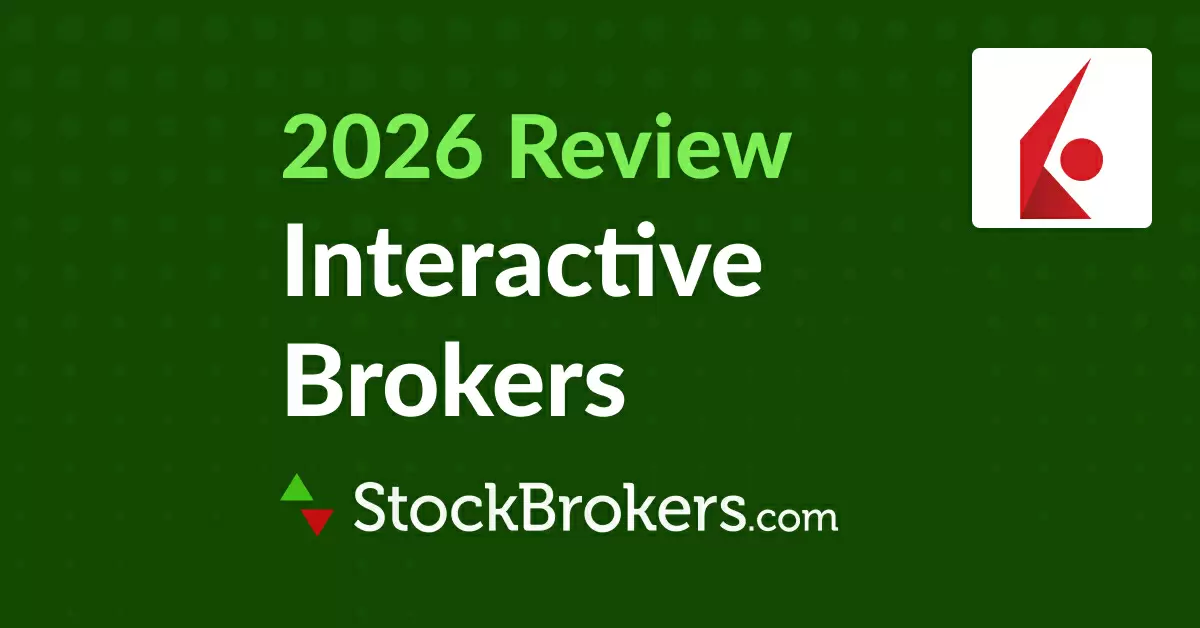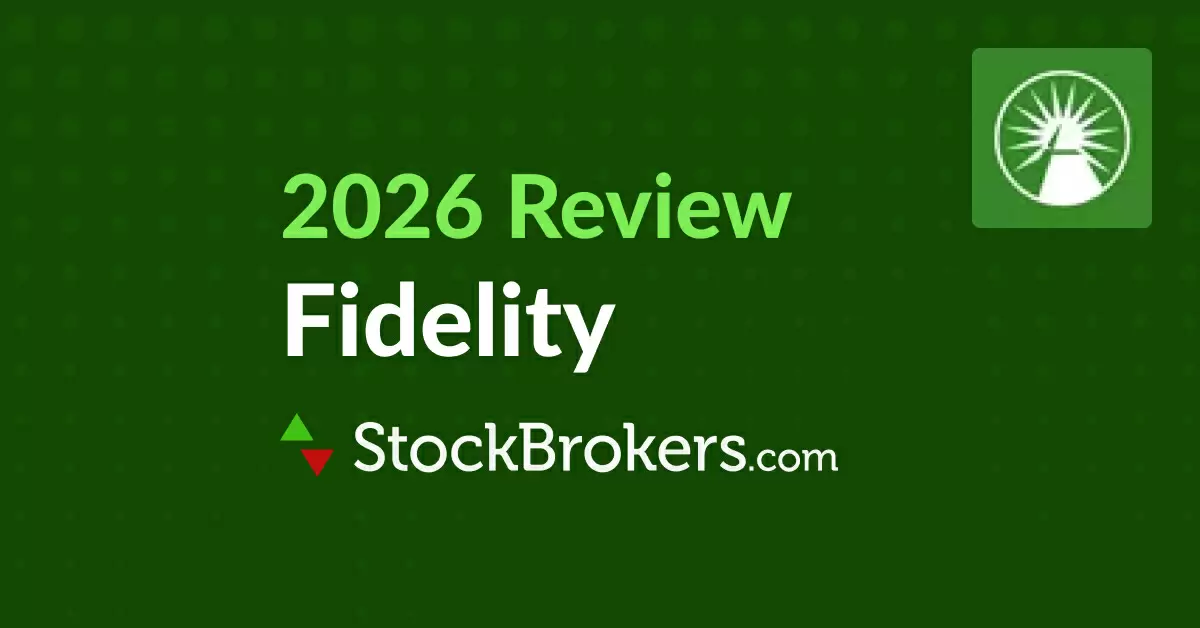Broker Reviews
StockBrokers.com reviews many of the online brokers available today for trading. Our online broker reviews assess brokers that offer stock trading, options trading, ETFs, mutual funds, IRAs, bonds, futures, and forex.
Our goal is to provide the most in-depth reviews so investors can find the best brokerage for their investing needs. Each year our team tests and assesses these firms on nearly 200 variables to formulate star ratings for various categories, as well as the scoring for the best online brokers 2026.
Featured Award Winners
Charles Schwab Review
eToro Review
E*TRADE Review
Fidelity Review
Interactive Brokers Review
Public.com Review
Robinhood Review
TradeStation Review
Webull Review
Best Stock Brokers
Read our Charles Schwab review to learn why its platforms, research, and investor resources make it one of the top-ranked brokerages.
Read our Fidelity review and discover how its powerful tools, in-depth education, and no-fee trading set the standard for online investing.
Read our Interactive Brokers review and see why it’s a top choice for active traders with low costs, cutting-edge platforms, and global reach.
Read our 2026 E*TRADE review to see how powerful research, versatile platforms, and diverse investments make it a top choice for all investors.
Read our Merrill Edge Self-Directed review and see how it combines powerful investing tools, robust research, and integrated banking benefits.
Read our Webull review and discover its commission-free trading, sleek platforms, paper trading tools, and fractional shares.
Read our Robinhood review and see why it’s a top pick for beginners, with a sleek mobile app, zero commissions, and standout educational tools.
Discover the best stock brokers of 2026. Compare Schwab, Fidelity, Interactive Brokers, E*TRADE, and more to find the top trading platform for your needs.
Featured offers
Best Trading Apps
Best Brokers for Beginners
Read our Fidelity review and discover how its powerful tools, in-depth education, and no-fee trading set the standard for online investing.
Read our 2026 E*TRADE review to see how powerful research, versatile platforms, and diverse investments make it a top choice for all investors.
Read our Charles Schwab review to learn why its platforms, research, and investor resources make it one of the top-ranked brokerages.
Read our Interactive Brokers review and see why it’s a top choice for active traders with low costs, cutting-edge platforms, and global reach.
Read our Robinhood review and see why it’s a top pick for beginners, with a sleek mobile app, zero commissions, and standout educational tools.
Best Stock Trading Platforms for Beginners of 2026
Start investing with ease. Explore the best beginner-friendly trading platforms with low fees, great education, and intuitive apps.
Featured Offers
Trading Tool Reviews
Read our Finviz review and see how it delivers advanced filtering, interactive heat maps, and in-depth financial visualizations.
Read our Stock Rover review and learn how its advanced screeners, portfolio insights, and research tools stack up for serious, data-driven investors.
Read our Tradervue review and discover its powerful trade analysis tools, detailed reports, and active community for improving your investment strategies.
Read our TraderSync review to see how this AI-powered trading journal helps track trades, spot patterns, and improve performance for active traders.
Read our TradingView review to see how its powerful charting, 100+ indicators, and active trader community help investors analyze markets and share ideas.
TipRanks uses AI and big data to rate stocks and spot ideas. Read our review to learn its pros, cons, pricing, and if it’s right for your portfolio.
Discover if TrendSpider is right for you in this in-depth review. Explore its AI trading bots, chart tools, pricing plans, and how it compares to alternatives like TradingView and StockHero.
Read our Trade Ideas review to see how Holly AI and Money Machine deliver daily AI-powered trading strategies, backtesting, and real-time market scans.
Recently Updated Broker Reviews
Read our Ally Invest review to explore its user-friendly platform, automated investing portfolios, and wide range of investment options.
Read our Interactive Brokers review and see why it’s a top choice for active traders with low costs, cutting-edge platforms, and global reach.
Read our Merrill Edge Self-Directed review and see how it combines powerful investing tools, robust research, and integrated banking benefits.
Read our eToro review to explore its interactive platform, built-in discussions, and tools for crypto and stock investing.
Read our Charles Schwab review to learn why its platforms, research, and investor resources make it one of the top-ranked brokerages.
Read our tastytrade review and discover why it’s the top choice for options traders, with low fees, advanced tools, and a seamless platform.
Read our TradeStation review and discover why its pro-level tools, deep customization, and options focus make it a top choice for active traders.
Read our Webull review and discover its commission-free trading, sleek platforms, paper trading tools, and fractional shares.
Read our Firstrade review and see why it’s a top choice for options traders, offering $0 contract fees, robust tools, and a growing feature set.
Read our Fidelity review and discover how its powerful tools, in-depth education, and no-fee trading set the standard for online investing.
Popular Guides for Stock Trading
Best Stock Trading Apps for 2026
Best Stock Brokers for 2026
Best Stock Trading Platforms for Beginners
Best Paper Trading Apps & Platforms for 2026
Best Day Trading Platforms
Best Futures Trading Platforms for 2026
Best Brokers for Penny Stock Trading
3 Best AI Trading Bots for 2026
Compare Stock Brokers
Best International Brokers for Stock Trading in 2026
Compare Stock Brokers
Online Broker Reviews
- Ally Invest review
- Charles Schwab review
- eToro review
- E*TRADE review
- Fidelity review
- Firstrade review
- Interactive Brokers review
- J.P. Morgan Self-Directed Investing review
- NinjaTrader Review
- Merrill Edge review
- Public.com review
- QTrade review
- Questrade review
- Robinhood review
- tastytrade review
- TD Ameritrade review
- TradeStation review
- Wealthsimple review
- Webull review
Other Content Hubs
Browse in-depth investing guides covering stock trading apps, beginner platforms, futures, options, penny stocks, and more to sharpen your strategy.
Compare the best online stock brokers in the U.S. and get a side-by-side look at each broker's fees, apps, trading tools, investments, platforms, ratings, and more.
Explore in-depth trading tool reviews covering charting, screeners, trading journals, and automation to find the best platform for your investing strategy.
Discover top trading & retirement education in one place. We cover stocks, IRAs, 401(k)s, charts & strategies with free tutorials & expert reviews.













 vs.
vs. 
 vs.
vs. 
 vs.
vs.  vs.
vs. 
